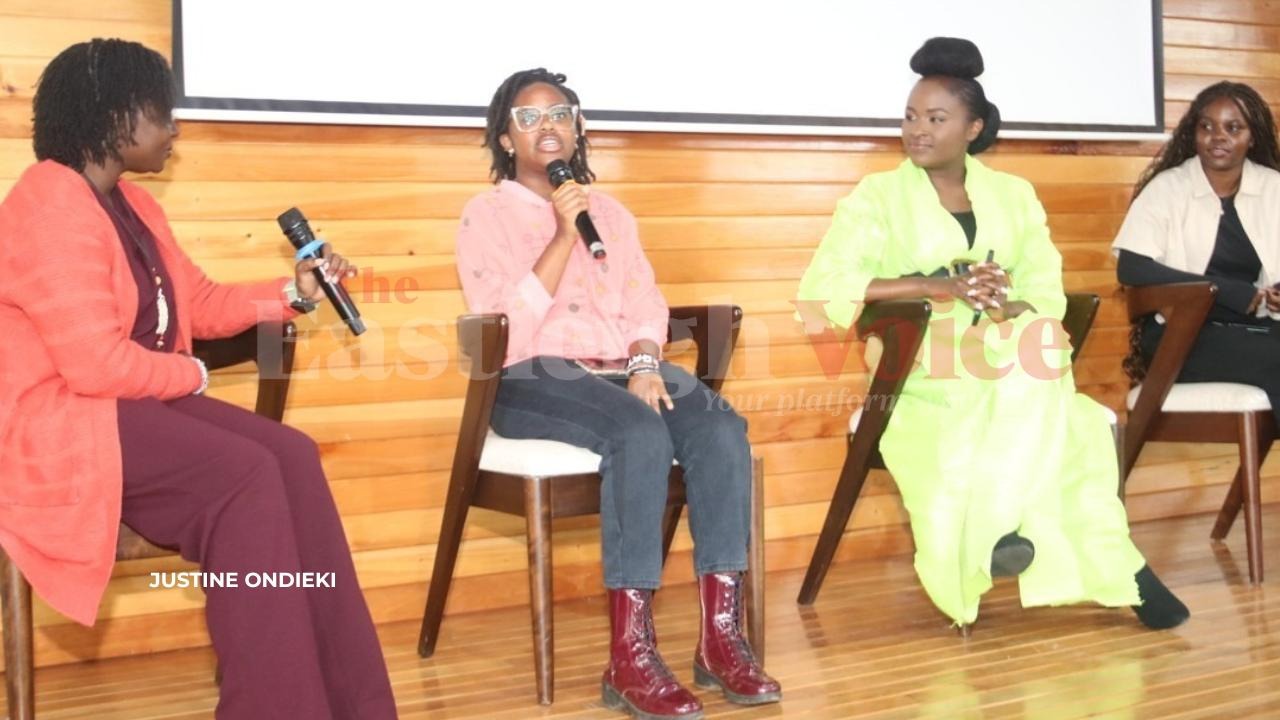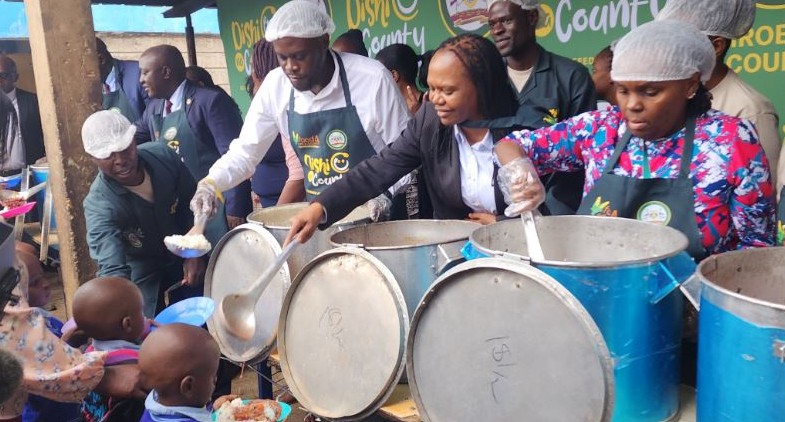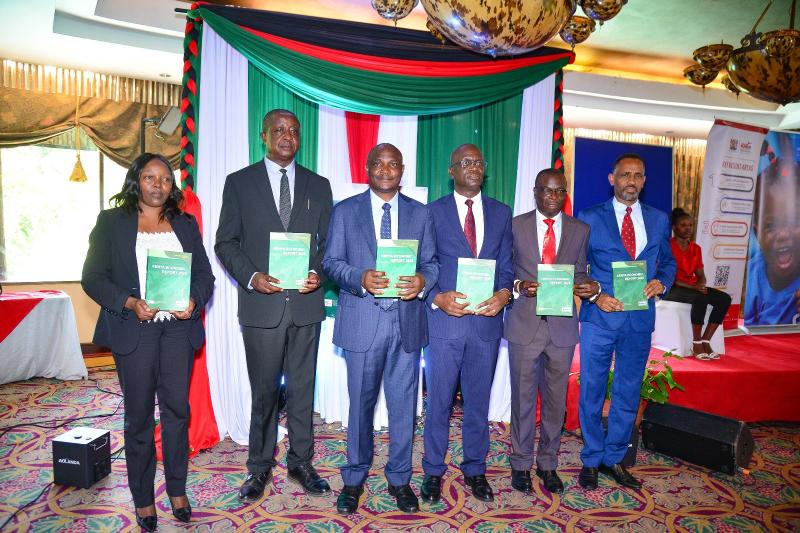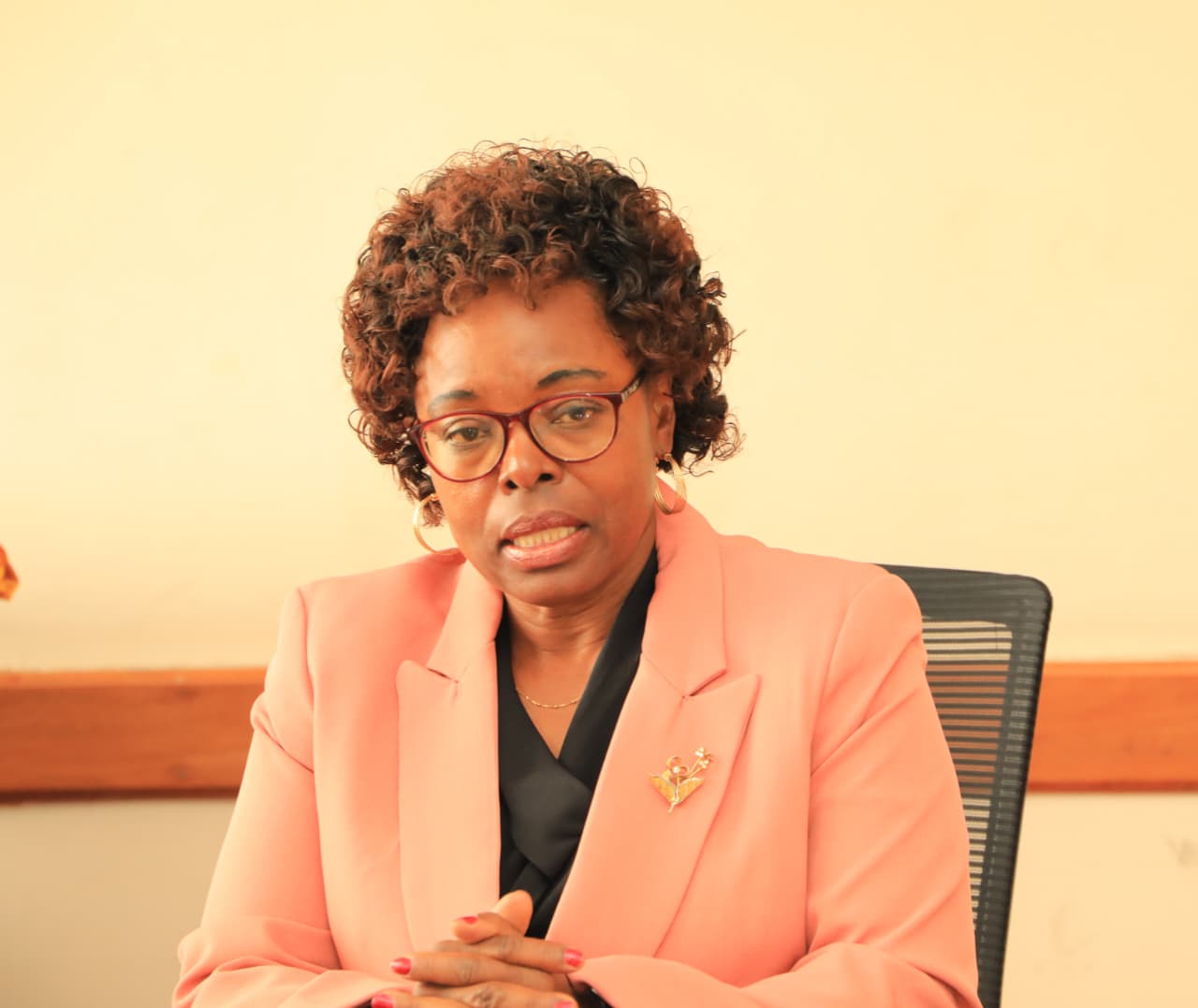How one teen mom defied stigma, rebuilt her future and became a role model for others

From shame and whispers in her village to empowerment and professional success, Rawder Kidula’s journey shows how parental support and resilience can turn teen pregnancy into a story of hope and triumph.
For many young teenagers, the pressure to fit in, the desire to feel "cool," and the influence of peers create a confusing and challenging period of life. Some experiment without fully understanding the weight of their decisions, the responsibilities involved, or the long-term consequences.
This was exactly the case for Rawder Kidula. At just 17, she discovered she was already four months pregnant—a moment that changed everything.
More To Read
Like many teens, she had received warnings about pregnancy but never thought it could happen to her. At the time, it was the least of her worries. She believed she was being careful.
In her community, teen pregnancy was a serious taboo. Judgment came from all sides—soft whispers in public, harsh comments behind closed doors, and a crushing shame that settled deep within her. The stigma was not only external; it became an inner struggle, accompanied by suicidal thoughts she carried daily.
Parents deeply disappointed
Her parents were deeply disappointed but remained supportive. Still, the stigma was relentless. In the village, whispers followed her everywhere—people murmuring that she had "thrown away her future."
"My parents were disappointed in me. I felt so ashamed, so guilty... sometimes I even felt like hurting myself. I was physically small, and everything felt heavy."
Even going to church became painful. She could hear people whispering, and the weight of their judgment felt crushing. The boy involved seemed to have a choice about whether to be present or not, which only added to her sense of isolation.
The journey was profoundly lonely. There were moments when she longed to speak, but the fear of reopening the disappointment she had caused kept her silent.
In the village, other girls were warned not to follow her path, turning her into an example of what not to become.
For many families, teenage pregnancy brings deep disappointment that overshadows reason, compassion, and hope. While some parents respond with understanding, others react with anger, silence, or withdrawal—leaving the teen feeling alone. This lack of support can push young mothers into early marriages or difficult situations that follow them for years.
Support
Though many parents react with anger or withdrawal, some—despite their disappointment—choose to support their daughters and ensure their futures are not wasted. That was the case for Kidula. Despite the challenges and stigma, she gradually learned to take responsibility for her life.
"Your life isn't over," she says. "Don't spend time blaming others. Take charge of your path, trust God—He will guide you and help you grow into a better person and a responsible parent."
She notes that many teens abandon their lives when they get pregnant, but she emphasises that a teenage pregnancy does not mean the end of one's future. She believes it is unfair to place all the blame on parents. According to her, parents do what they can, while teenagers become pregnant for a variety of reasons—poverty, lack of guidance, low self-esteem, or simply a search for love.
Other Topics To Read
- Headlines
- Health
- Teen pregnancy
- Teen pregnancy success story
- Parental support for teen moms
- Overcoming teenage motherhood stigma
- Teen mom education and career
- Rawder Kidula story
- Adolescent pregnancy challenges Kenya
- Teen pregnancy empowerment
- How one teen mom defied stigma
- rebuilt her future and became a role model for others
Reflecting on her own experience, she shares that she once saw her parents as old-fashioned and never imagined she could become pregnant. She thought teenage pregnancy only happened to other girls who were "careless" and did not realize how vulnerable she was. Believing she was in love and wanting to prove it, she also succumbed to the peer pressure common in high school.
Forced into adulthood
Pregnancy forced her into adulthood quickly. Even though her parents forgave her, the journey was lonely at times. Her mother was supportive and helped take care of the baby, but her father was deeply disappointed and became quiet and distant for a while.
"When you're pregnant under your father's roof, they give you what they can, but the responsibility is still yours. When the baby cried, they let me handle it. I washed napkins for a whole year. It was my reality."
After a year, with help from her aunt and parents, she went to university to study Media and Communication. Her parents took on the responsibility of caring for the baby while she focused on rebuilding her life, her education, and her future. The experience pushed her to become disciplined—for herself and for her child.
Today, she is a trained journalist and media personality with a podcast dedicated to marriage, parenting, and the realities of teen pregnancy. She uses her story to guide teenagers, mothers, and parents—helping them understand how decisions made in youth can shape an entire lifetime.
A living reminder
Her daughter, now 18, is a living reminder of how far she has come. Kidula is also now married—seven years strong—with a four-year-old baby. Looking back, she acknowledges that her teenage pregnancy was the result of peer pressure, lack of information, and the curiosity that many young people face.
Kidula recognises how the trauma of her own teenage experience has made her overprotective.
"I'm learning to be a better parent—to model purity and responsibility without projecting my fears."
Bouncing back wasn't easy.
"The truth is, as a woman, there is no quick bounce-back. You make a decision to cope as you go. Teen pregnancy changes your life. When your age-mates are in school, you take detours and play catch-up. Some milestones must be delayed. Motherhood is lifelong, and the consequences can be severe."
Teen pregnancy affects not only the young mother but also the child. Kidula recalls a moment that broke her heart.
"When my daughter was in Class Three, she was asked to write about her father. She left the page blank because he wasn't there. The same thing happened in Form One when other students asked where her father was."
She says she expected teachers to understand, but not everyone does.
"Societal judgment follows the children. While you can pull yourself together and move on, the consequences last a lifetime. Right now, my age-mates are raising four-year-olds, but I'm raising an 18-year-old."
Physical and social burdens
Beyond the stigma and psychological stress associated with teenage pregnancy, young mothers face significant physical and social burdens. According to Dr Jalemba Aluvaala, a senior lecturer in the Department of Paediatrics and Child Health at the University of Nairobi, adolescents' bodies are often not fully matured to carry a pregnancy safely to term. This biological immaturity increases the risk of preterm birth, defined as delivery before 37 weeks of gestation.
Preterm births are categorised as extremely preterm (less than 28 weeks), very preterm (28–32 weeks), and moderate to late preterm (32–36 weeks). Preterm infants face higher risks of complications such as respiratory distress, low birth weight, infections, and long-term developmental challenges.
Teenage mothers are more likely to give birth prematurely due to a combination of biological and social factors. Physiologically, their reproductive systems may not be fully developed. Socially, many adolescents live in environments with limited access to nutrition, quality healthcare, and emotional support, further compromising maternal and foetal health.
Contributing factors include anaemia, high stress levels, and inadequate prenatal care.
As Dr Aluvaala explains, "The young body is still growing, and adding the demands of pregnancy can overwhelm it, putting both mother and baby at serious risk."
Families and guardians play a critical role in supporting teenage mothers. Ensuring regular antenatal care and access to proper nutrition and healthcare can help mitigate some of the health risks associated with young maternal age. The combination of biological vulnerability and socio-environmental challenges makes comprehensive care and family support essential to protect both mother and child.
According to the World Health Organisation (WHO), adolescent mothers aged 15–19 face significantly higher risks of adverse birth outcomes, including preterm birth, low birth weight, and severe neonatal complications, compared to older mothers. Globally, around 21 million pregnancies occur each year among adolescents in low- and middle-income countries, with about 12 million resulting in births.
In Kenya, the 2022 Demographic and Health Survey reported that roughly 15 percent of adolescent girls aged 15–19 have either been pregnant or given birth. Of these, 12 percent have delivered, 1 percent experienced pregnancy loss, and 3 percent are currently pregnant.
Rates vary widely across the country, from as high as 50 percent in Samburu County to below 10 percent in Nyeri and Nyandarua. Although there has been some decline—such as 241,228 adolescent pregnancies recorded at first antenatal visits in 2024—the issue remains pervasive, particularly among older teens.
High adolescent pregnancies
Kenya is among the countries with the highest rates of adolescent pregnancy, with approximately 82 births per 1,000 girls aged 15–19. This means roughly one in every five girls in this age group is either pregnant or already a mother.
Key drivers of teenage pregnancy include limited knowledge of reproduction, cultural myths about family planning, financial vulnerability, and poor access to youth-friendly sexual and reproductive health (SRH) services.
Poverty and transactional relationships increase risk, while stigma and lack of confidentiality in services deter adolescents from seeking care.
The consequences are substantial: many teenage mothers drop out of school, face financial hardship, and experience strained family relationships. Supportive families, partners, and opportunities to re-enter school can mitigate these impacts.
Intervention studies suggest that multi-sectoral, gender-transformative programs combining school-based education, community engagement, and health services are most effective in reducing teenage pregnancy rates.
Top Stories Today










































